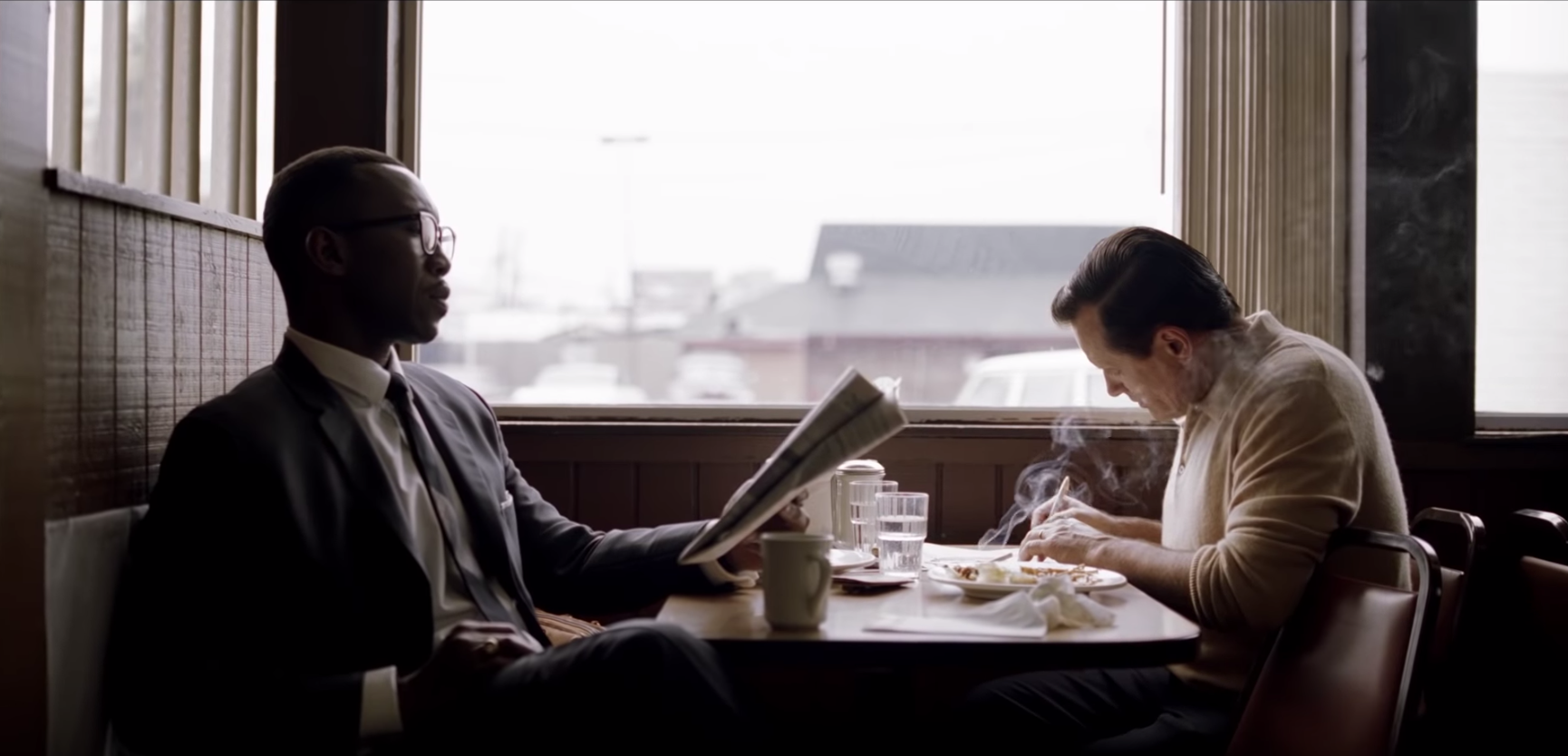The Four Hundred: Enough With The Savior Narratives
On Feb. 24 at the 91st annual Academy Awards, the film Green Book won the Oscar for the Best Picture. The film beat its competitors Black Panther, Blackkklansman, Bohemian Rhapsody, The Favorite, Roma, A Star is Born and VICE. All these films were worthy of the Oscar, but the members of the Academy favored the story of accomplished African-American concert pianist Dr. Donald Shirley’s friendship with Italian-American bouncer Tony “Lip” Vallelonga, who Dr. Shirley hired to drive him around during his 1962 tour of the deep south.
The film gets its title from The Negro Motorist Green Book, published by a black postal carrier Victor H. Green. Green relied on the experiences of his own and of other black members of his postal service union for the inaugural guide that he published in 1937, under his own name. The book was a guide for black travelers to places like hotels, restaurants, beauty parlors, nightclubs, golf courses and state parks, and even residential lodging networks, which were private residences where black travelers could find a safe place to stay.
The film encountered troubles from the start, as soon as the film was released. An article on digital magazine Shadow and Act interviewed several of Dr. Shirley’s family members about the film. Most of the members raised their, and Dr. Shirley’s objections about the film. Edwin Shirley III, Dr. Shirley’s nephew, had this to say about the making of the film: “I remember very, very clearly, going back 30 years, my uncle had been approached by Nick Vallelonga, the son of Tony Vallelonga, about a movie on his life, and Uncle Donald told me about it,” Edwin said. “He flatly refused.”
The family got to know that the film had been made only after seeing Mahershala Ali’s Jan. 19, 2018 Instagram post. Edwin’s daughter, Yvonne, contacted the producers about the film. Jim Burke, one of the producers of the film got back to her, and assured them that “the family would be pleased with how things turned out.”
After trying to speak to Nick Vallelonga for a long time, Edwin finally met Nick at the premiere of the film, where Edwin commended Nick for his “tenacity” for getting the film made. Edwin stated that Nick told him, “ but he said that Vallelonga told him that my “father (Tony Vallelonga) and I went to see him and he gave us his blessing,” to which Edwin replied that it was “hard to believe.”
Dr. Shirley had denied his permission for the film because according to Edwin, Dr. Shirley was of the opinion that “No matter what they say to me now, I will not have any control over how I am portrayed.” Eventually, that turned out to be true.
The film received criticism across the board. The film essentially tells the story from the perspective of Tony Vallelonga, rather than the other way around. As film critic K Austin Collins wrote in Vanity Fair, “Tony Lip is the historical footnote—not, despite the awkwardly rejiggered emphasis of this movie, the other way around.” Writer Jenni Miller also wrote an article for NBC News titled “'The Green Book' is a movie about racism, made by white people for white people. See the problem?” Joining this list of critics was late night TV, with Desus and Mero doing a parody called “The Greenest Book” Late Night with Seth Meyers doing a parody called “White Savior: The Movie Trailer,” in which they parodied all the white savior films that they could think of.
The Green Book can be added to the list of films that have dealt with race relations, albeit with negative results. That list is not short by any means. Films like The Blind Side (2009), The Help (2011) have also been criticized for being narratives that relied on White Savior tropes. In an interview with Vanity Fair in September 2018, Viola Davis, one of the stars of the film The Help, mentioned that she regretted doing the film, and said, “I just felt that at the end of the day that it wasn’t the voices of the maids that were heard.”
Davis might have echoed the thoughts of some of the critics of the film. Writing about the film in The Boston Globe, film critic Wesley Morris stated, “The Help joins everything from To Kill a Mockingbird to The Blind Side as another Hollywood movie that sees racial progress as the province of white do-gooderism.”
Coincidentally, it was Wesley Morris (who is now the critic-at-large at The New York Times) who spoke about the Green Book win on The New York Times podcast, The Daily, on Feb. 26. Talking about how these race relations films try to sell a fantasy, he explained, “The Fantasy is that prolonged exposure to a black person is going to cure you of your racism.” The Desus & Mero sketch says the same thing in a hilarious way, in the form of a mock review of The Greenest Book, as “Wait, there’s another one of these movies? What is wrong with you people? Please leave us alone. It is not our job to make white people feel better about race stuff.”
The visual arts do an important job of speaking about race relations. While the question “Who can tell a story?” is an entirely different debate, “Whose voice is prominent?” has to be considered while such stories are told. Most white savior films have, unfortunately, not been able to find the right balance. It remains to be seen whether their criticisms are taken positively. Let’s hope that they are.

